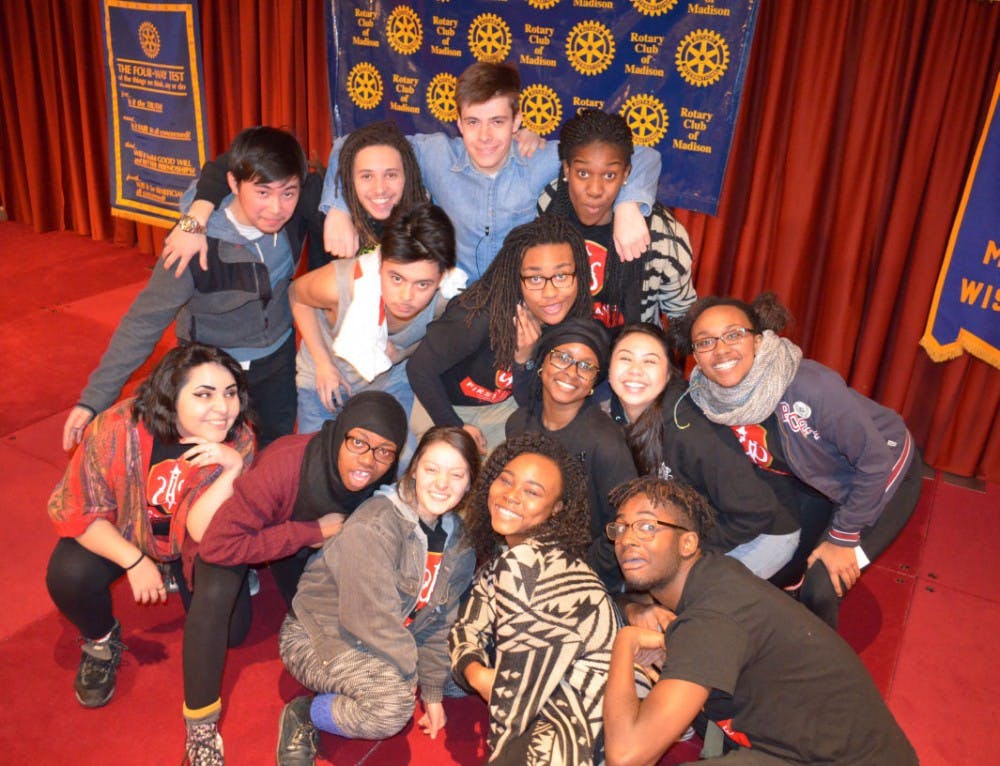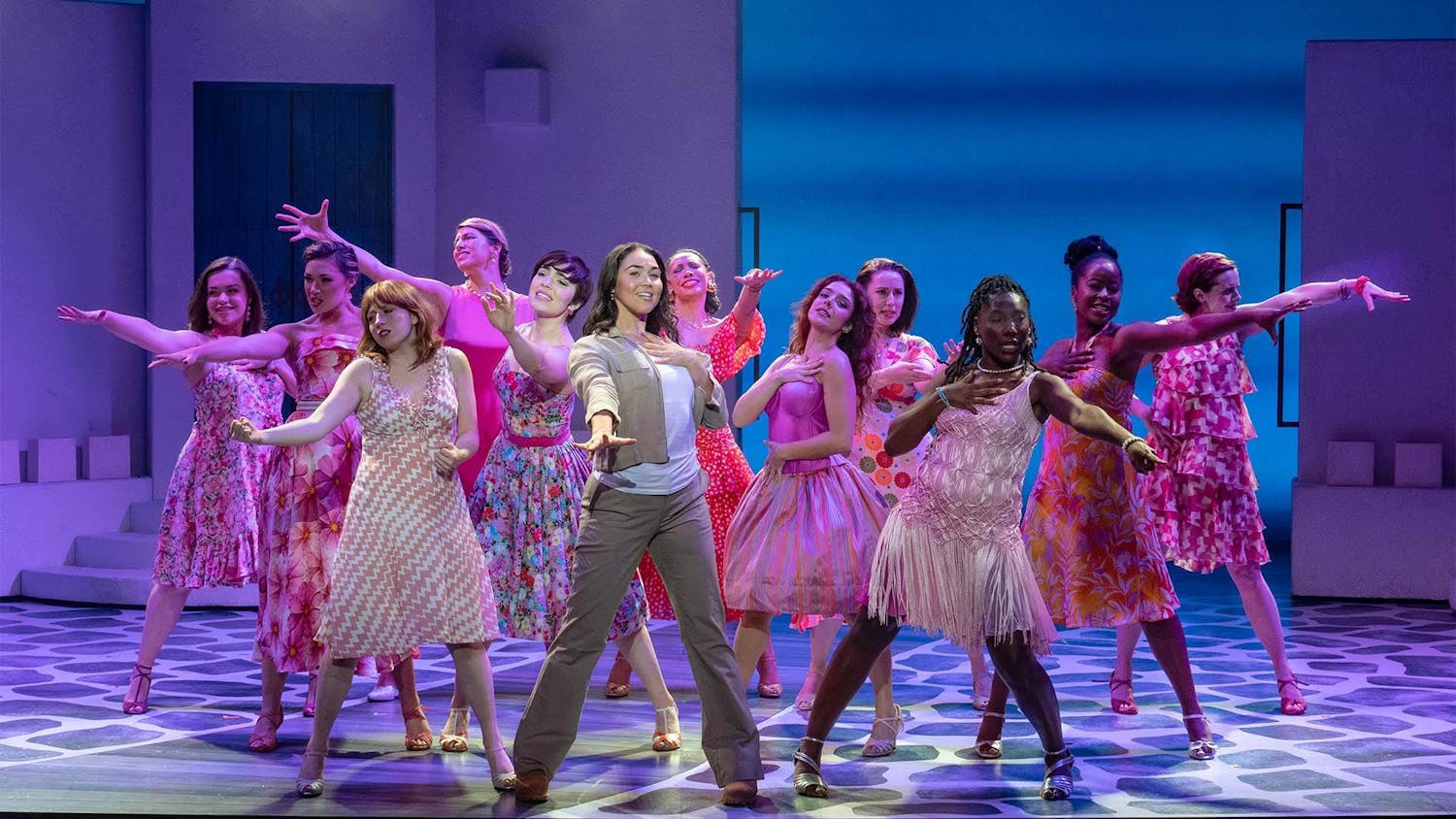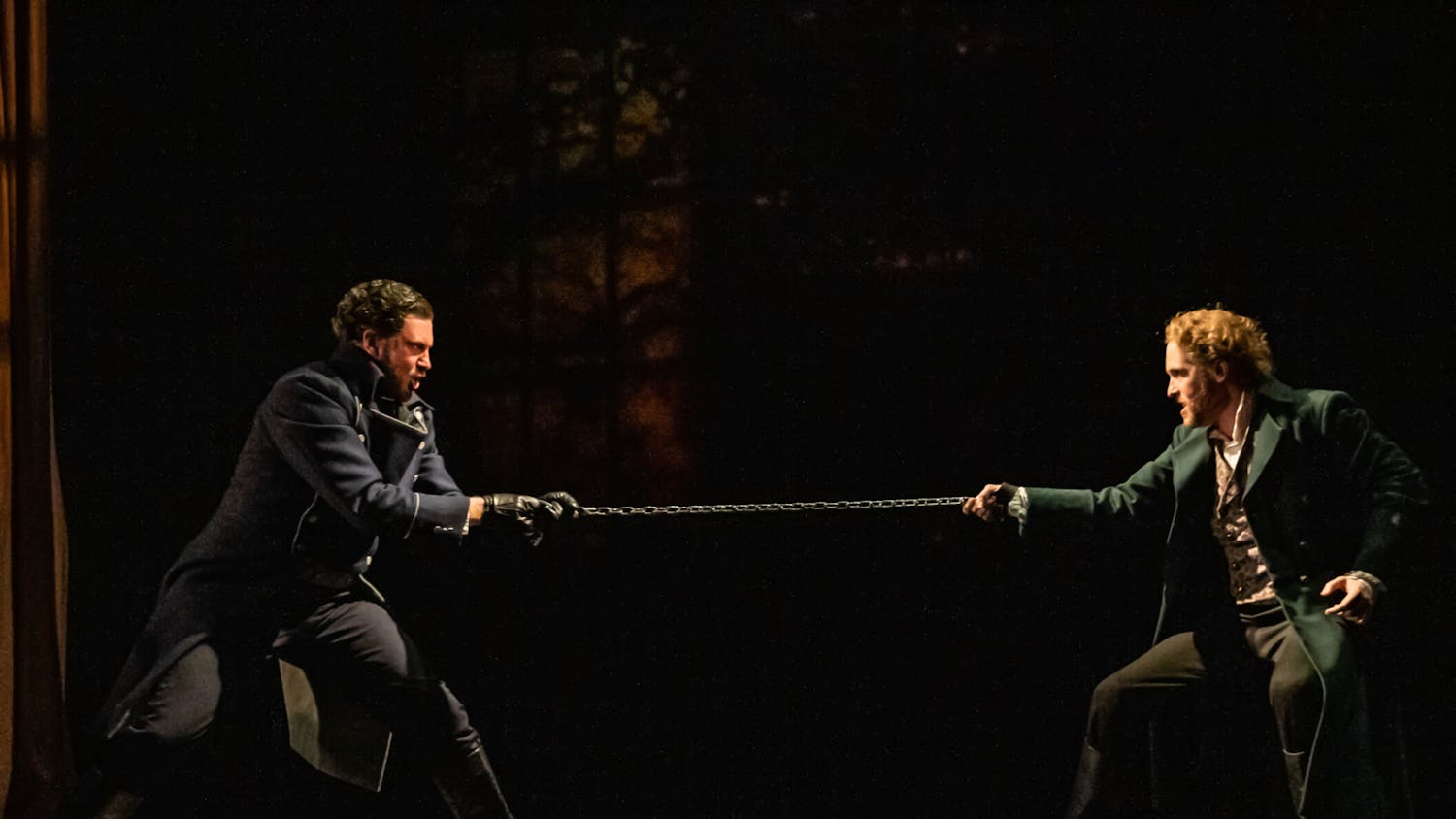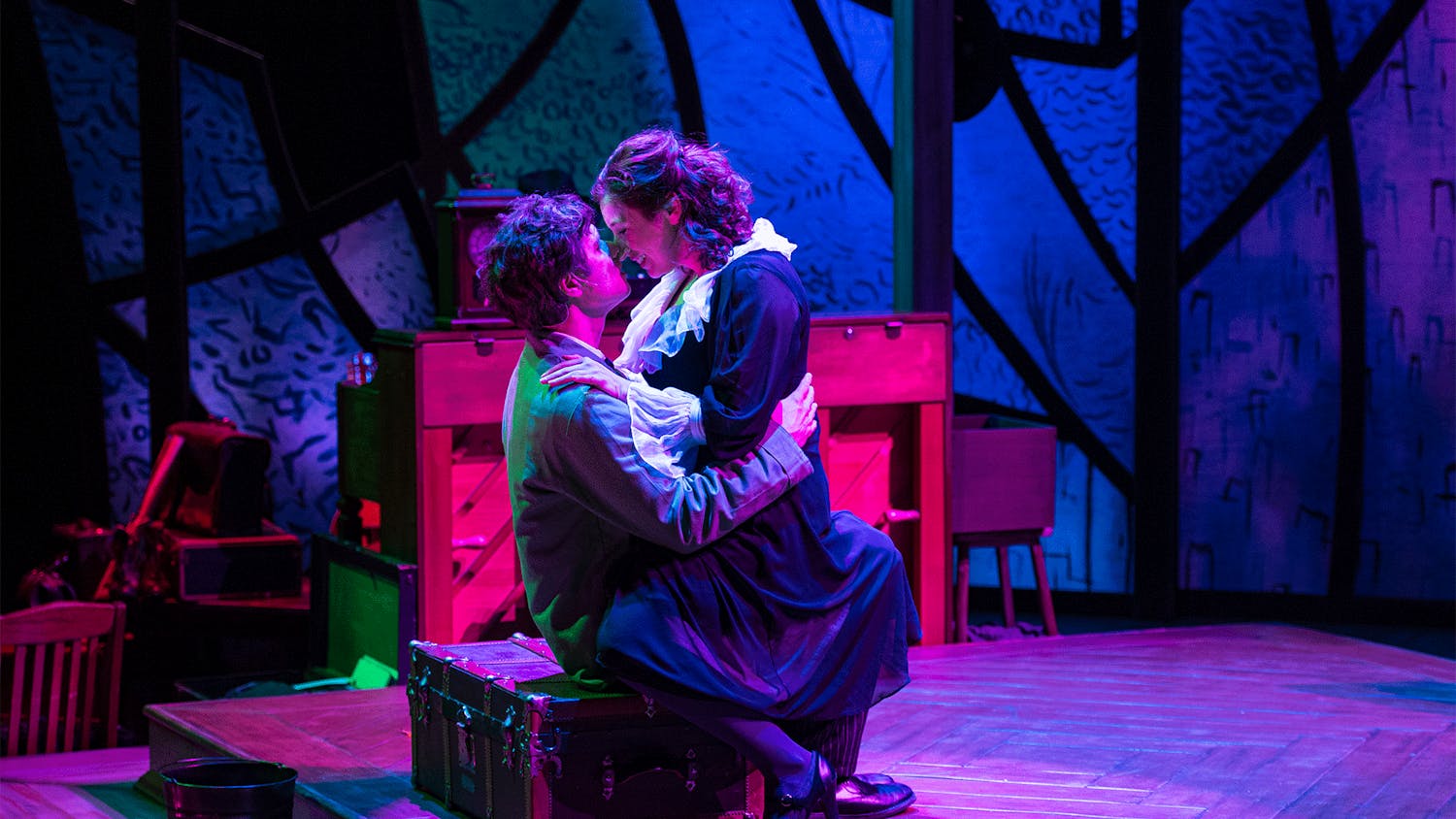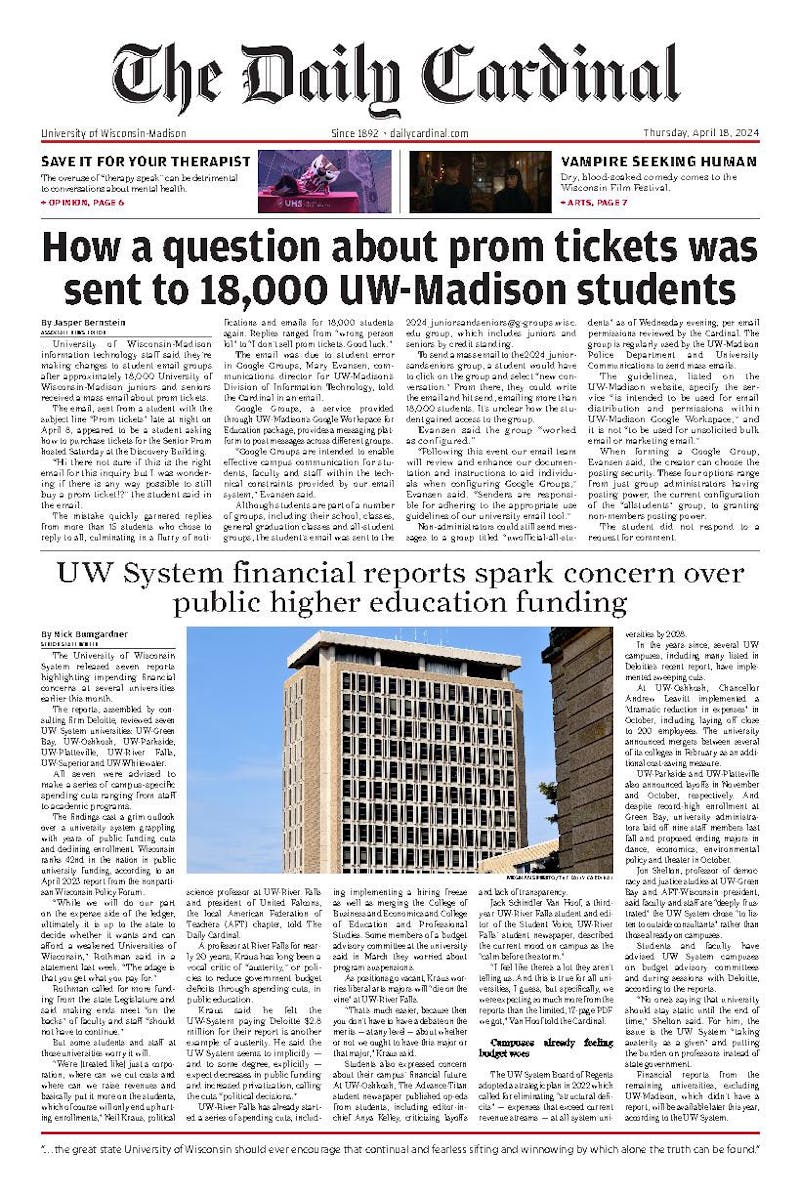As the UW-Madison campus steps into March, another semester is well underway. This is especially true for the First Wave Hip Hop and Urban Arts Learning Community. The program of passionate artists has been in full swing with various performances and projects. A portion of the work includes the 8th Cohort’s recent performance for the 2015 Rotary Ethics Symposium, the strong participation in the recent Moonshine showcase and the Womyn's History Month Celebration/Showcase.
The campus has another opportunity to hear the powerful student voices for the program’s annual Line Breaks Festival. For the past nine years, First Wave has showcased the vast artistic talent it nurtures through the Line Breaks Festival, which includes poetry/spoken word, dance, rap, digital media and visual art. This semester, First Wave intends for an even better show.
Fourteen performances, a mix of ensembles and solos, are in deep preparation. Some hard-hitters include the 8th Cohort’s first total ensemble “Staying Hungry,” T Banks, with a revamped version of her play “Loud and Unchained: Spiritual,” Zhalarina Sanders presenting the well-anticipated finished work Rose Gold and Garrett Pauli giving us interesting perspective with his “Skeletons of Silence.” With such ambiguously deep titles, there’s much to expect. These artists offered a bit of pre-show insight to galvanize our interest.
DC: Can you expound on what your title means?
Nia Scott (of 8th Co.): We really wanted to delve deeper into inequality and what that means, whether that is racial, economic or sexism and we expounded on the idea that America is a restaurant. Who would be served and who would be left hungry?
Garrett: I think white privilege is like a skeletal structure. A skeleton is made of a bunch of parts, but you don't see it, but you know it's there right? So I play on the idea of skeletons and white silence. I'm trying to break those bones, which is kind of like unlearning racism to break my silence.
T Banks: It's about me and my struggles living with Schizophrenia. It's a continuation of Loud and Unchained of last year. It's talking about this pull from God back and forth, like 'Why me?' It touches on the intersections of my identity, being gay, black, schizophrenic and Christian. And that's why this time it's called spiritual. It's like a sequel.
Zhalarina: “Rose Gold” is a lot simpler than a lot of people think. I love the metal on black skin and that's really the motivation for the name of the show.
DC: Is this an ensemble piece or solo?
Nia: Everyone does touch the stage.
Garrett: It's a one man show. [But there are] multiple frames of age. There are different ages of me ranging from 9 or 10 to present day.
T Banks: Last year I had a phenomenal cast of six beautiful women. [This show,] it's a different cast. It's going to be an ensemble cast like last year, so it's going to be multiple people playing me and the voice of God.
Zhalarina: It is a one-woman play.
DC: What are the key takeaways you want the audience to walk away with?
Nia: What is legacy? What is staying hungry? Asking yourself these questions and answering them for yourself.
Garrett: I want people to take away that there are a lot of places where racism and white silence can come from.
T Banks: That I'm just a person and even though I have mental wellness challenges, it doesn't make me any different. Other people around us live with mental wellness challenges as well, and I just want [the audience] to walk away knowing that we need just as much support, love, attention and affection as anyone else. [I want to] break the stigma of, ‘You're crazy,’ or, ‘You're bipolar.’
Zhalarina: That there is a reason why black girls are loud, and that love is everything.
DC: How often do you rehearse and what is rehearsal like for you?
Nia: We really just run the show every single time we are together because there are so many people in the show and we are still college students. We really just try to find two hours every other day making sure everybody is memorized and comfortable in their roles.
Garrett: Three to four times a week, two to three hours each. I'm just putting in as much work as I can. And then there's the out of rehearsal part. I'll have to create the cues, voice-overs or where the sounds go.
T Banks: I'm used to being recorded. That's how we crafted the show. Rain Wilson just recorded conversations we had. First time it was over six hours of interview that she scribed. This year, I took moments from my psychosis, recorded on my cell phone. So what's interesting is I have no idea what's been said because most of the time I'm in a sick space. So when I get the script it's the first time seeing my words back to me. It's really magical and really scary at the same time because everything is verbatim.
Zhalarina: It's been exhausting [because of] the energy, emotional [and] physical, having to reserve a part of my mental capacity for 70 minutes worth of show.
DC: What anxieties or concerns do you have stepping into the show?
Nia: Finishing in the time frame we are given, making sure everything we want to say is said, even though there have been many cuts made to the original pieces.
Garrett: Does it communicate exactly what I want to say to the people? As an artist you want to control the intent as much as possible. But the impact depends on who's receiving and their perspective and experience.
T Banks: I'm pretty attached to the old cast. I'm very nervous about picking people all over again.
Zhalarina: My mom is coming. This is her first time ever seeing me do anything like this. And what she doesn't know is that I'm doing a tribute to her as well at the end of my show. I have to finish the tribute and try not to cry halfway through it.
DC: Are you excited?
Everyone: Yes
It is evident that all of the students in the festival have much to be proud of. As Line Breaks curator and head manager Rain Wilson described, "The students use their art to channel their narrative,” because, "this is their language.”
“It’s a huge machine with a lot of moving of parts,” Wilson said, and mentioned that there were struggles with hiring directors, scheduling rehearsals and tending to the specific need of each group. Managing 14 shows is no short feat, but Rain is facing the challenge head on. She said that she’s grateful for the assistance she's received, including the Arts Institute for promotional assistance, and Forward Theater for recommending writing, directing and choreography coaches.
In addition to the student performers, the program has many new parts to its roster this year. For the first time, Line Breaks will include a visual arts gallery in the Education Building that will stay open for the public through the end of the month. Line Breaks will also feature two days of alumni and faculty performances. This is an exciting new addition, with alumni Kelsey Pyro, Camea Davis and si dåko'ta alcantara-camacho returning to the UW-Madison campus. Pyro said that to participate is a great opportunity, as the trip is not just a return to the campus, but also a return to the stage.
Pyro will debut her one-woman show, “Break the Cycle,” a story about, "first generation college students' unique struggles to graduate.” She described her feelings as "positive nervousness,” and continues to explain the "real life after graduating." Nonetheless, Pyro is amped to share her wisdom in a multimedia experience, seeing as the play is set in a video game and the character must beat the obstacles to reach graduation. The alumna said she expects a successful debut as she makes plans to tour her play to other colleges and universities throughout the country.
As aforementioned, First Wave will also feature faculty performances. We received a glimpse of dance professor Chris Walker's dancing in his performance for Moonshine on Feb. 27, in which he presented a story about Caribbean ancestry and folklore. For Line Breaks, Walker is sure to give us another captivating, culturally enriched experience. UW-Madison has yet to see Wilson’s artistry on the stage, and the campus is certainly in for more empowerment when Rain debuts her new play, “Valley of Vigils.”
First Wave’s Line Breaks Festival will run from March 11 to March 17. All events are free, and the Overture Center will host most of the events.

